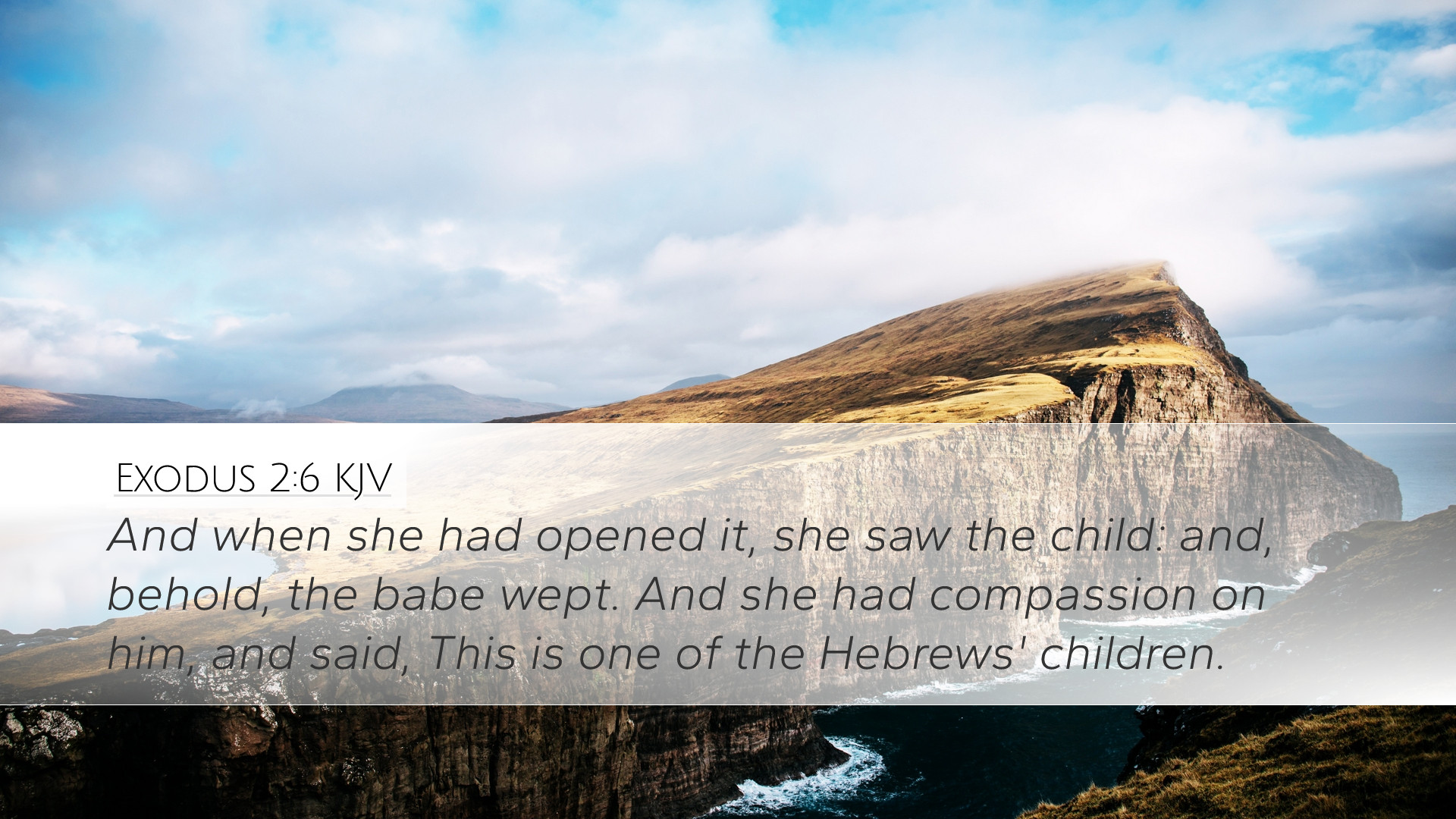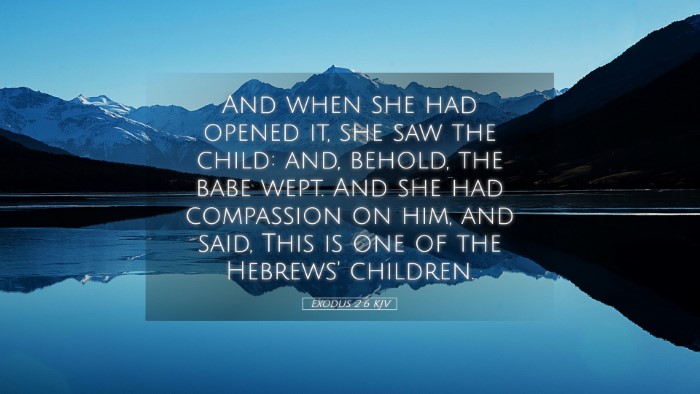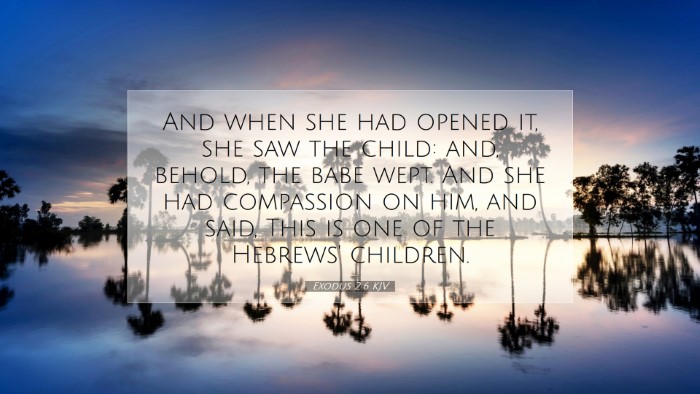Exodus 2:6 Commentary
Verse: "And when she had opened it, she saw the child: and, behold, the babe wept. And she had compassion on him, and said, This is one of the Hebrews' children."
Introduction
This pivotal moment in the Exodus narrative encapsulates themes of compassion, identity, and divine providence. The verse shows the encounter between Pharaoh's daughter and baby Moses, a story rich in theological significance and moral implications. Public domain commentaries from Matthew Henry, Albert Barnes, and Adam Clarke provide profound insights into the implications of this verse.
The Context of Exodus 2
To fully appreciate the weight of Exodus 2:6, it is crucial to consider the surrounding context. The birth of Moses occurs at a time when the Israelites suffered under Egyptian bondage, and Pharaoh had decreed the death of all Hebrew newborn males. In this dire situation, Moses’ mother makes a bold choice to save him by placing him in a basket and setting it afloat on the Nile River.
Analysis of the Verse
Opening of the Basket: The act of Pharaoh's daughter opening the basket (or ark) is laden with significance. This moment represents a divine appointment, as the situation unfolds according to God’s plan. As Albert Barnes notes, there is an implication of providence in the very act happening; the princess is drawn to the basket by means that seem coincidental but are, in reality, orchestrated by God.
The Child’s Weeping: The baby's weeping is not merely an expression of need; it invokes the compassion of Pharaoh’s daughter. Matthew Henry highlights the emotional response stirred in her as she encounters the child. The weeping of Moses draws out the innate compassion within her, suggesting a divine empathy that transcends her cultural and social status.
Compassion and Recognition: The phrase “she had compassion on him” indicates a moment of kindred recognition. Adam Clarke elaborates on this compassion as a reflection of the heart of God, which often intervenes in the plight of the oppressed. This points to a universal truth—the capacity for empathy exists regardless of societal barriers. This is further underscored by her acknowledgment, “This is one of the Hebrews' children,” illuminating her awareness of Moses' identity even amid her royal privilege.
Theological Reflections
This verse unfolds several theological themes:
- Providence of God: The events leading to Moses' rescue showcase God's sovereign control over historical events. He uses unexpected channels, such as the compassion of an Egyptian princess, to fulfill His purpose for Israel's deliverance.
- Identity and Deliverance: Moses' identity as one of the Hebrews highlights God’s plan for His people. Moses is not merely a child; he is the future leader of Israel, destined to lead them to freedom. The recognition of his identity by Pharaoh’s daughter foreshadows the greater narrative of liberation that follows.
- Compassion in Action: Pharaoh's daughter exemplifies the importance of compassion in leadership. Despite her father's decree, she chooses mercy over judgment. This serves as a practical lesson for leaders within the faith community on the virtue of compassion, as outlined by Matthew Henry.
Lessons for Pastors and Theologians
For pastors and theologians, Exodus 2:6 presents several critical points of reflection:
- Understanding God's Providence: Believers are encouraged to recognize God’s hand in their lives, especially in moments of despair. Just as He guided Pharaoh's daughter, He works through unexpected means to fulfill His purposes.
- Promoting Compassionate Leadership: This verse serves as a paradigm for leaders in church and community, stressing the need for compassion in action. Leaders should be aware of the vulnerable and prioritize empathy, demonstrating God’s love through their actions.
- Embracing Identity: The acknowledgment of Moses as a Hebrew child urges Christians to embrace their identity as children of God. This recognition instills a sense of purpose and belonging in the faith community.
Conclusion
Exodus 2:6 encapsulates a profound moment where divine intervention colludes with human compassion to initiate the grand narrative of redemption. This passage invites readers to explore deeper themes of identity, divine providence, and compassionate leadership. As we reflect on this encounter, may it inspire us to advocate for the vulnerable and recognize the hand of God working in our midst.
In summary, the insights derived from Matthew Henry, Albert Barnes, and Adam Clarke resonate deeply with the spiritual heart of this verse, urging believers to engage with the text not merely as historical account but as a living message relevant to contemporary life.


